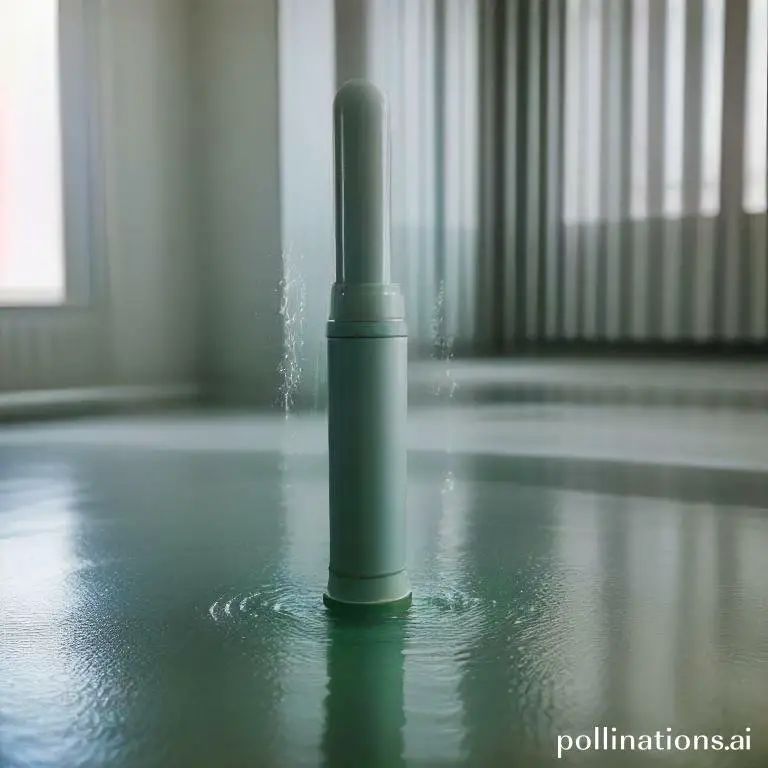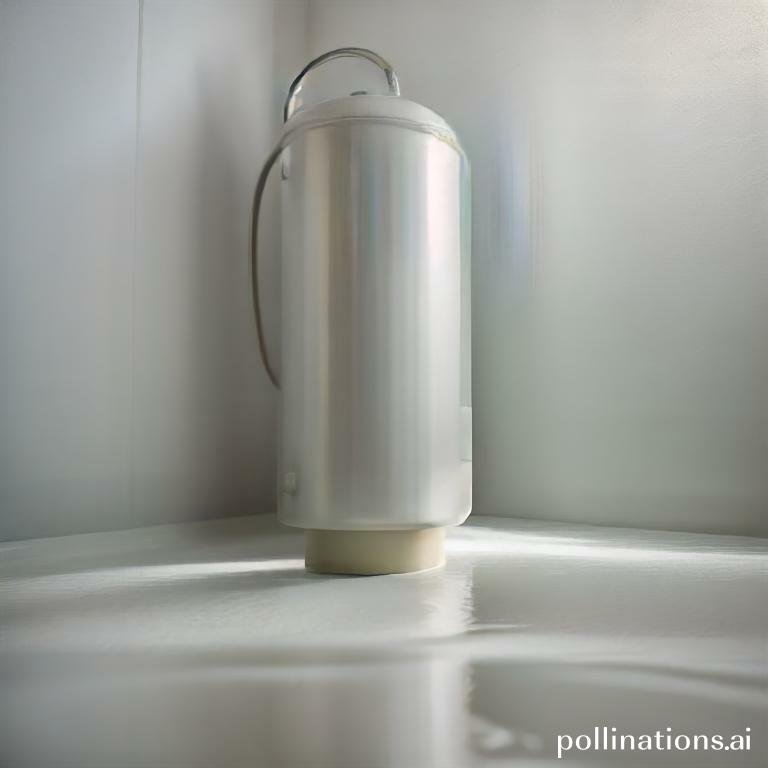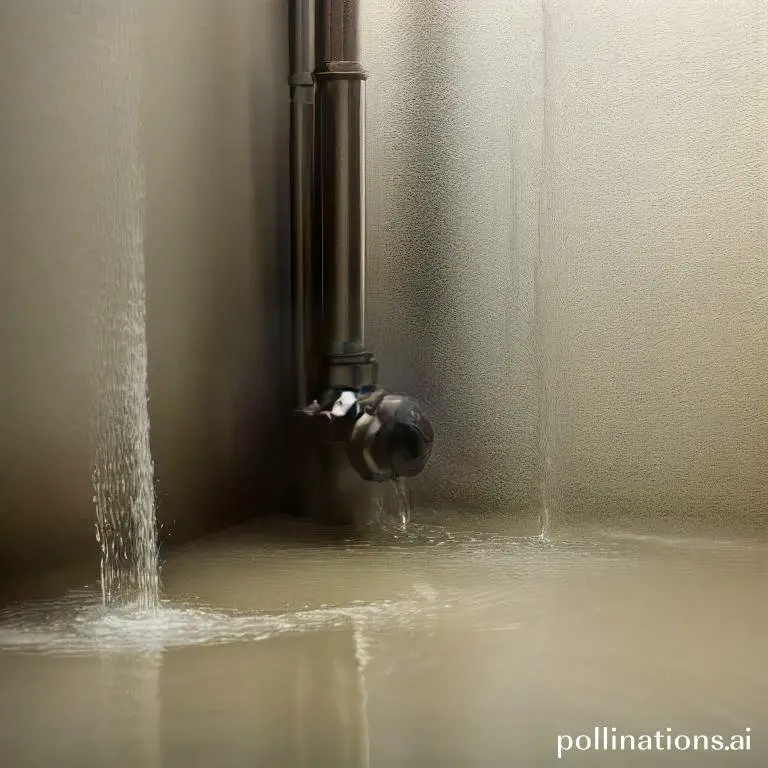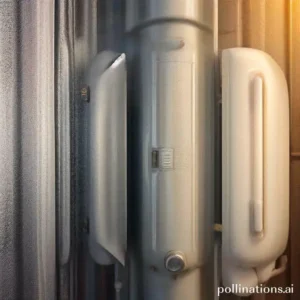
II. Common causes of water heater leaks include corrosion, high water pressure, and faulty valves or connections.
III. Regular maintenance and prompt repairs can help prevent water heater leaks and improve indoor air quality.
Water heater leaks can have a significant impact on indoor air quality. When a water heater leaks, it can lead to the growth of mold and mildew, which can release harmful spores into the air.
These spores can worsen respiratory conditions such as asthma and allergies. Additionally, water leaks can create a damp environment that is conducive to the growth of bacteria and other contaminants.
This can further compromise indoor air quality and lead to potential health issues. Vital to address water heater leaks promptly to maintain a healthy indoor environment.
Causes of Water Heater Leaks
Water heater leaks can be a frustrating and costly issue for homeowners. Mastering the causes of these leaks is essential for prevention and maintenance. This section will navigate the various factors that contribute to water heater leaks and provide valuable insights on how to address them.
1. Corrosion
Corrosion is one of the primary culprits behind water heater leaks. Over time, the metal components of the water heater tank can deteriorate due to chemical reactions with the water and the surrounding environment. Factors such as high mineral content in the water, exposure to corrosive substances, and lack of proper maintenance can accelerate the corrosion process. Regular inspection and timely replacement of corroded parts are essential to prevent leaks.
2. High Water Pressure
Excessive water pressure can put a strain on the water heater, leading to leaks. When the pressure inside the tank exceeds the recommended levels, the tank and its fittings may develop cracks or fractures. Installing a pressure regulator or a pressure relief valve can help mitigate this issue by controlling the water pressure and preventing potential leaks.
3. Improper Installation
A poorly installed water heater can be prone to leaks. Incorrect connections, faulty seals, or inadequate insulation can compromise the integrity of the system. It is crucial to hire a professional plumber or follow the manufacturer’s guidelines to ensure proper installation, thereby reducing the risk of leaks.
4. Age of the Water Heater
As water heaters age, they become more susceptible to leaks. The wear and tear accumulated over years of usage can weaken the tank and its components, making leaks more likely. Regular maintenance, such as flushing the tank to remove sediment buildup and replacing worn-out parts, can help prolong the lifespan of the water heater and minimize the risk of leaks.
5. Wear and Tear
Everyday usage can take a toll on the water heater, causing wear and tear on its components. Constant expansion and contraction due to heating and cooling cycles can lead to cracks, leaks, or loose fittings. Regular inspection, maintenance, and prompt repair of any signs of wear and tear can prevent minor issues from escalating into major leaks.
| Cause | Description |
|---|---|
| Corrosion | Chemical reactions with water and environment deteriorate metal components. |
| High Water Pressure | Excessive water pressure strains the tank, leading to cracks and fractures. |
| Improper Installation | Poor installation can result in faulty connections and compromised seals. |
| Age of the Water Heater | As water heaters age, the risk of leaks increases due to wear and tear. |
| Wear and Tear | Everyday usage causes expansion, contraction, and potential damage to the system. |
Signs of Water Heater Leaks
Water heater leaks can be a cause for concern and may indicate underlying issues that need immediate attention. By being aware of the signs of water heater leaks, you can prevent further damage and potentially costly repairs. Here are some key indicators to look out for:
1. Water puddles around the water heater
One of the most obvious signs of a water heater leak is the presence of water puddles around the unit. If you notice any pooling of water near the water heater, it could be a clear indication of a leak. Water puddles can form due to damaged or faulty pipes, valves, or the tank itself.
2. Rusty water
Another sign of a potential water heater leak is the presence of rusty water. If you turn on your hot water tap and notice discolored water, it could mean that your water heater is corroded or experiencing leaks. Rusty water can also be an indication of sediment buildup inside the tank, which can lead to leaks if not addressed promptly.
3. Strange noises
Unusual noises coming from your water heater, such as popping, banging, or hissing sounds, can be a sign of a leak. These noises could be due to the presence of air bubbles or water escaping from cracks or holes in the tank. Ignoring these sounds can lead to further damage and potential water heater failure.
4. Decreased water pressure
If you notice a sudden decrease in water pressure when using hot water, it could be an indication of a water heater leak. Leaks can disrupt the normal flow of water, leading to reduced pressure in your faucets and showerheads. It’s important to address this issue promptly to prevent further damage and inconvenience.
5. Increase in energy bills
An unexpected increase in your energy bills can also be a sign of a water heater leak. Leaks can cause your water heater to work harder and consume more energy to maintain the desired temperature. If you notice a significant spike in your energy costs without any other explanation, it’s worth investigating the possibility of a water heater leak.
Being aware of these signs can help you detect water heater leaks early and take appropriate action. If you notice any of these indicators, it’s advisable to consult a professional plumber who can diagnose the issue and recommend the necessary repairs or replacements. Remember, addressing water heater leaks promptly can save you from potential water damage and costly repairs in the long run.
Impact of Water Heater Leaks on Indoor Air Quality
Growth of mold and mildew
Water heater leaks can lead to the growth of mold and mildew in your home. When water escapes from the heater, it creates a damp environment that is perfect for mold and mildew to thrive. These fungi can release spores into the air, which can cause respiratory issues and allergies in individuals.
Presence of bacteria and viruses
Leaking water heaters can also introduce bacteria and viruses into your indoor air. The stagnant water in the leak can become a breeding ground for harmful microorganisms that can negatively impact your health. Breathing in the contaminated air can lead to illness and infections.
Increase in humidity levels
Water heater leaks can significantly increase the humidity levels in your home. Excess moisture in the air can create an uncomfortable living environment and promote the growth of mold and mildew. High humidity can also worsen respiratory conditions, such as asthma, and make it harder to breathe.
Allergy and asthma triggers
For individuals with allergies and asthma, water heater leaks can be particularly problematic. The presence of mold, mildew, and other allergens in the air can trigger allergy symptoms and asthma attacks. Fundamental to address water heater leaks promptly to maintain a healthy indoor environment for everyone.
Foul odor
A leaking water heater can emit a foul odor, which can permeate your home. The smell can be unpleasant and make it difficult to enjoy your living space. Identifying and fixing the leak can help eliminate the odor and improve the overall air quality in your home.

Prevention of Water Heater Leaks
In order to prevent water heater leaks and avoid potential damage to your home, essential to follow a few key steps. By implementing these preventive measures, you can ensure the longevity and efficient functioning of your water heater.
1. Regular Maintenance
Regular maintenance is essential for keeping your water heater in good condition. This includes flushing the tank to remove sediment buildup, checking for leaks or cracks, and inspecting the heating elements. By performing routine maintenance tasks, you can identify and address any potential issues before they escalate.
2. Installation of a Water Alarm
A water alarm is a device that can detect leaks and alert you before any significant damage occurs. By installing a water alarm near your water heater, you can receive early warnings of leaks or excessive water flow, allowing you to take immediate action and prevent extensive damage.
3. Replacement of Old Water Heaters
If your water heater is old, it may be more prone to leaks and malfunctions. Consider replacing your old water heater with a newer, more efficient model. Newer water heaters often come with improved safety features and are less likely to develop leaks or other issues.
4. Installation of a Pressure Regulator Valve
A pressure regulator valve helps to maintain a consistent and safe water pressure level in your plumbing system. Excessive water pressure can put stress on your water heater and increase the risk of leaks. By installing a pressure regulator valve, you can prevent unnecessary strain on your water heater and reduce the likelihood of leaks.
5. Hiring a Professional Plumber
In the realm of water heater installation, maintenance, or repairs, it is best to rely on the expertise of a professional plumber. A qualified plumber can ensure that your water heater is installed correctly, perform regular maintenance tasks effectively, and address any issues promptly. Hiring a professional plumber can provide you with peace of mind and help prevent water heater leaks.
| Prevention Methods | Benefits |
|---|---|
| Regular maintenance | – Extends the lifespan of the water heater – Identifies issues early on |
| Installation of a water alarm | – Early detection of leaks – Prevents extensive damage |
| Replacement of old water heaters | – Improved safety features – Decreased risk of leaks |
| Installation of a pressure regulator valve | – Maintains safe water pressure – Reduces strain on the water heater |
| Hiring a professional plumber | – Expertise and quality assurance – Prompt addressing of issues |

Remediation of Water Heater Leaks
Water heater leaks can cause significant damage if not addressed promptly. Follow these steps to remediate the situation and prevent further issues:
1. Immediate shut-off of water supply
As soon as you notice a water heater leak, it is crucial to turn off the water supply. Locate the shut-off valve, usually located near the water heater, and close it to stop the flow of water.
2. Cleaning up water and drying affected areas
Once the water supply is shut off, focus on cleaning up the water and drying the affected areas. Use towels or a wet vacuum to remove standing water, and set up fans or dehumidifiers to aid in the drying process. This will help prevent mold growth and further damage.
3. Repair or replacement of the water heater
After addressing the initial water damage, assess the condition of the water heater. Depending on the extent of the leak and the age of the unit, it may need to be repaired or replaced. Consult a professional plumber to determine the best course of action.
4. Inspection for mold growth and remediation
Water leaks can create a conducive environment for mold growth. It is essential to thoroughly inspect the affected areas for any signs of mold. If mold is present, consult a mold remediation specialist to safely remove and remediate the mold.
5. Restoration of indoor air quality
Water leaks can impact the indoor air quality of your home. After addressing the leak and any mold issues, focus on restoring the air quality. This may involve using air purifiers or seeking professional assistance to ensure the air is clean and healthy to breathe.
To provide you with a clear overview of the remediation process, here is a table summarizing the steps:
| Step | Action |
|---|---|
| 1 | Immediate shut-off of water supply |
| 2 | Cleaning up water and drying affected areas |
| 3 | Repair or replacement of the water heater |
| 4 | Inspection for mold growth and remediation |
| 5 | Restoration of indoor air quality |
Bottom Line
Water heater leaks can have a significant impact on indoor air quality, leading to mold growth, unpleasant odors, and potential health hazards. Integral to address any leaks promptly and thoroughly, including repairing or replacing the water heater if necessary. Regular maintenance and inspection of the water heater can also help prevent leaks and ensure optimal performance. Additionally, proper ventilation and air circulation can help improve indoor air quality and reduce the risk of mold and other contaminants. By taking proactive steps to address water heater leaks and maintain good indoor air quality, homeowners can ensure a safe and healthy living environment for themselves and their families.
Read More:
1. Diy Leak Detection For Propane Water Heaters
2. Leaks In Solar Water Heaters And Their Repair
















